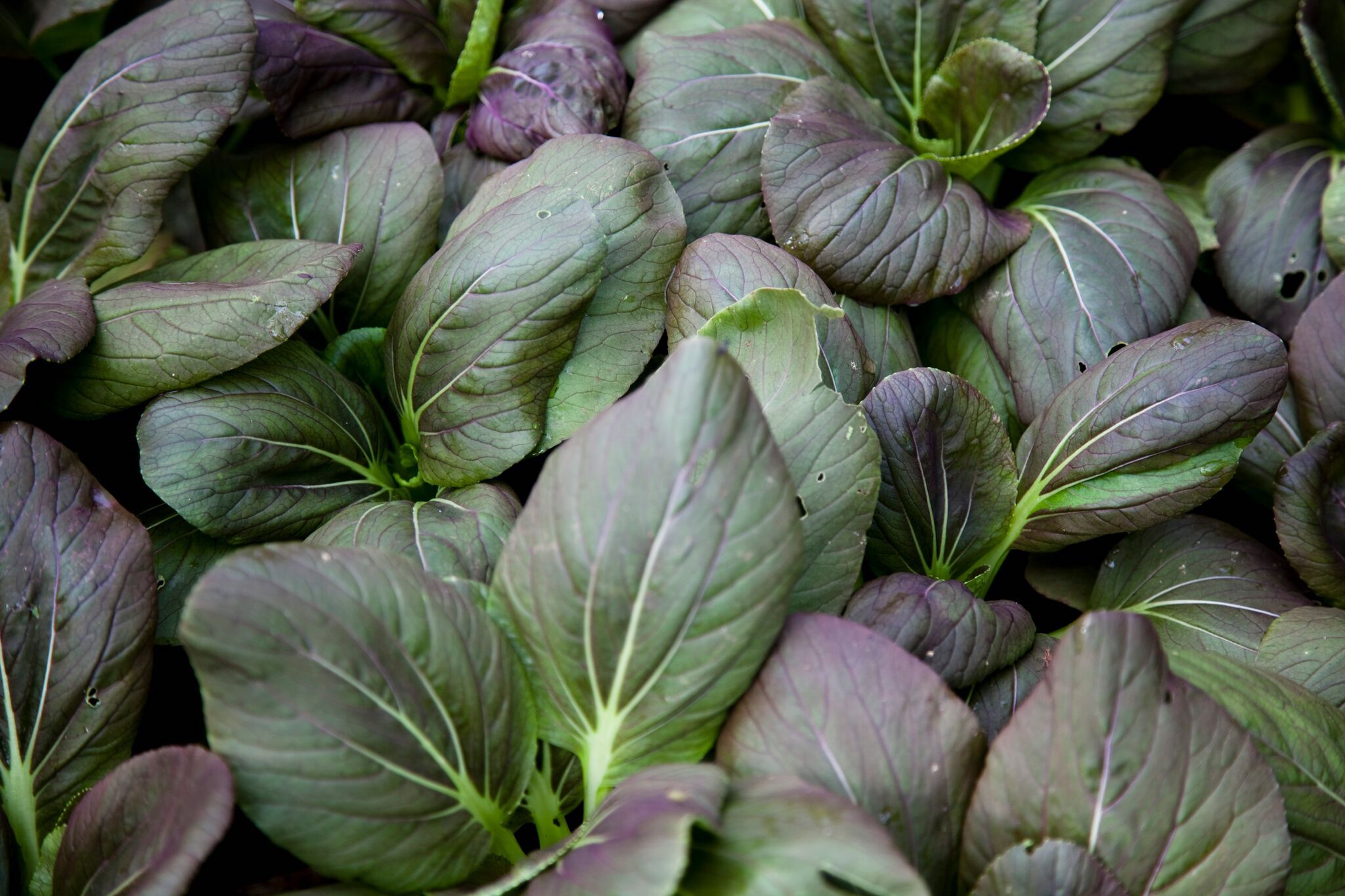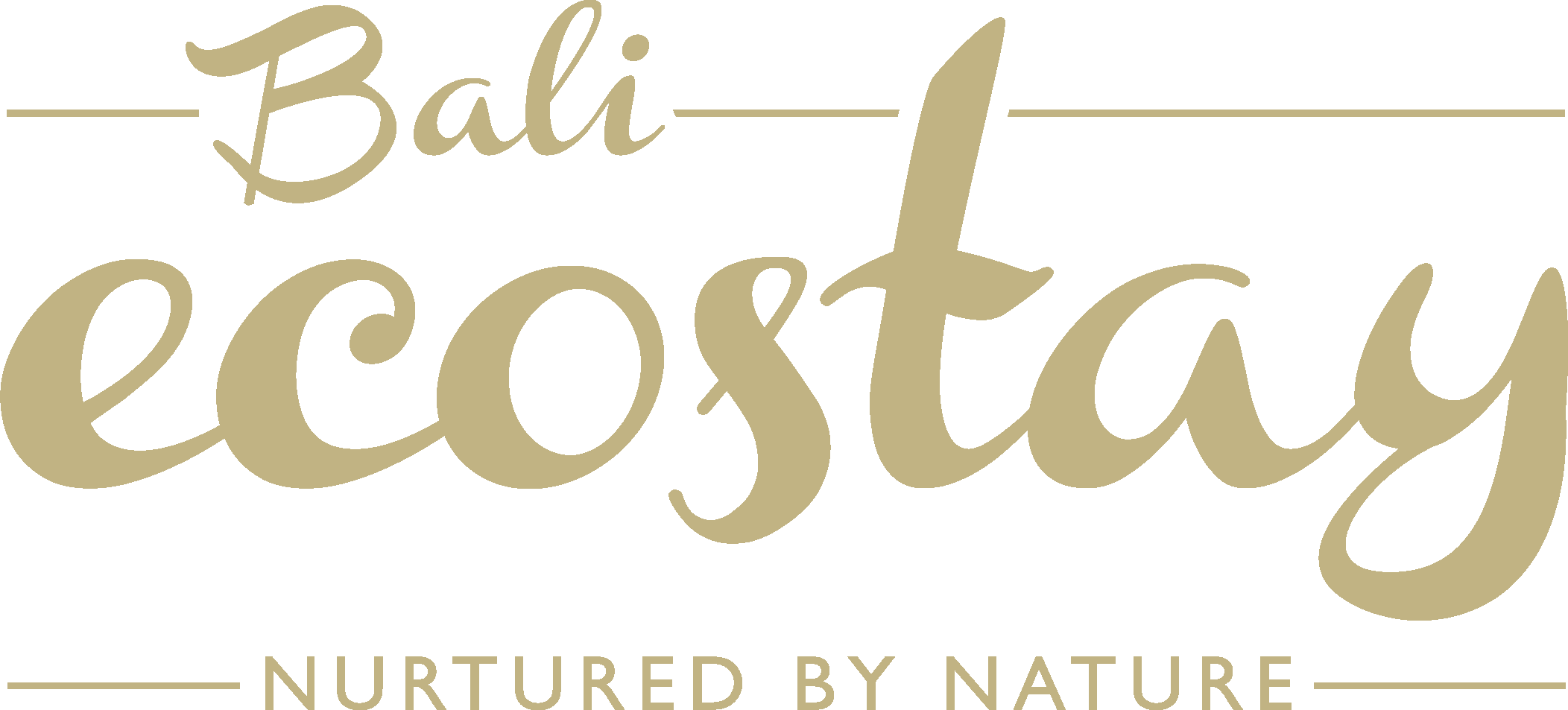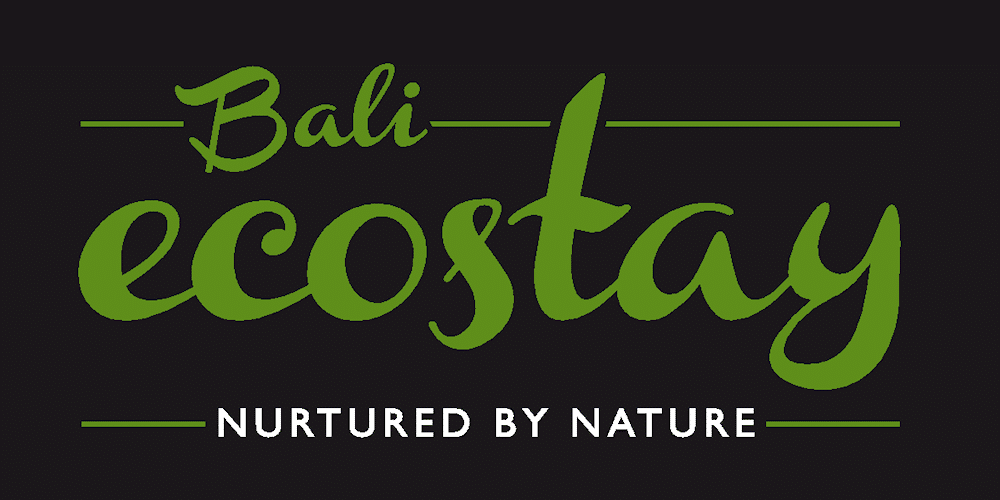Our Food
From the start, our philosophy has been to develop our site in harmony with nature in order to preserve the pristine natural beauty of our surrounding landscapes and villages, in partnership with local communities.
We cleared coconut trees for building and safety purposes, thinned out and composted lots of cacao trees that were ill, which made room for an intensive food garden and more diverse fruit tree plantings. We retained and built around the paddies to produce our own organic rice, and transformed one quarter of the total paddy into spring fed aquaculture ponds.

Permaculture in practice
Permaculture is at the heart of everything we do. This ensures that we serve you the best possible food in the cleanest and purest way; without causing any harm to our lands. Permaculture integrates land, resources, people and the environment through mutually beneficial synergies. The whole idea behind this system is to work with nature rather than against it.
By using permaculture, we cohabitate in a functional and mutually beneficial system with nature, whereby whatever we take from the land we give back, so it’s a never ending cycle. We only take what we need and limit waste as much as possible. By thinking carefully about the way we use our resources (food, energy, shelter, materials and non-materials) it is possible to get much more out of life by using less. By working with nature and understanding its patterns, we can be more productive using less effort, thereby reaping more benefits for our environment and ourselves. This encourages us to be resourceful and self-reliant.
75% of our restaurant menu consists of local cuisine, which is cooked by our Balinese staff using traditional methods learnt from their own mothers and grandmothers. To give you the full flavors of Bali, we freshly grind our local herbs and spices daily. We work with our guests to reduce food waste by encouraging them to pre-order meals. When there is food waste, it is consumed by our free-range chickens, or if the food is not appropriate for chickens, our staff take it home to feed their pigs.
Food gardens
In our rich food garden we grow organically a diverse selection of vegetables, several lettuce varieties, sweet potato, spinach, rocket, celery, pumpkin, beans, kale, cucumber, radishes, pak choy; condiments such as vanilla, ginger, turmeric, galangal, cinnamon, coriander, lemongrass, basil, oregano, all spice and chilli; and fruits such as rambutan, kepundung, tomatoes, avocado, lime, jeruk bali, mandarins, mango, star fruit, jack fruit, guava, papaya, banana, pineapple and coconut. We harvest our own palm sugar, and soon we will also have organic coffee. Native fruit and nut trees have been planted to encourage beneficial insects and wildlife, and to diversify our fruit harvest so that we are more self-sufficient.
We do not use chemical fertilizers and we only monocrop rice (because of its requirement of padi conditions). All other seedlings are planted randomly and interspersed with aromatic herbs to confuse predators. When we do experience insect plagues, such as grasshoppers in the paddy, we use a strong brew of black tea, mixed with coriander and chilli, which is very effective.
Our free-range chickens produce eggs daily, and help to turn and fertilize our compost, which is used to nourish the soil of our intensive food garden. We never resort to pesticides. We are always on the lookout for materials that can help build the food garden soil, such as decomposing timber that breaks down, carbon rich cacao pods, grass clippings and waterweeds.
Bali’s rice heritage
We take immense pride in supporting the re-introduction of heritage rice on the island. Fewer farmers on Bali are harvesting heritage rice due to the extended growth period required. They resort to growing Monsanto hybrid rice, which takes three months until harvest, employing pesticides and chemical fertilizers to keep pests at bay and speed up the process.
The variety of grain we have chosen takes only two weeks longer to grow. Growing organically is more labour intensive, weeds need to be removed instead of poisoned, and it takes time and labour to improve the soil instead of using chemical fertilizers. We improve the soil by turning in the old crop, along with chop and drop material (vegetation waste from around the property) and adding mature cow manure. It would help to build the soil if we could grow an alternate crop, like a green manure crop, but our paddy has several springs that prevent it from being able to drain sufficiently for an alternate crop.
The main disadvantage of growing heritage grain is that it takes a little longer to mature; therefore it is difficult to coordinate our crop with our neighbors and share the predators before harvest. However good things take time, which is why heritage rice is far more nutritious and tasty.
Guest education
At 9.30 each morning, guests are welcome to join our 1 hour tour of Bali Eco Stay. It provides an insight into how permaculture principles have guided our resort design, construction, food gardens, chicken compost, aquaculture, heritage rice production and hydro power generation. Please notify restaurant staff at breakfast if you would like to attend.

